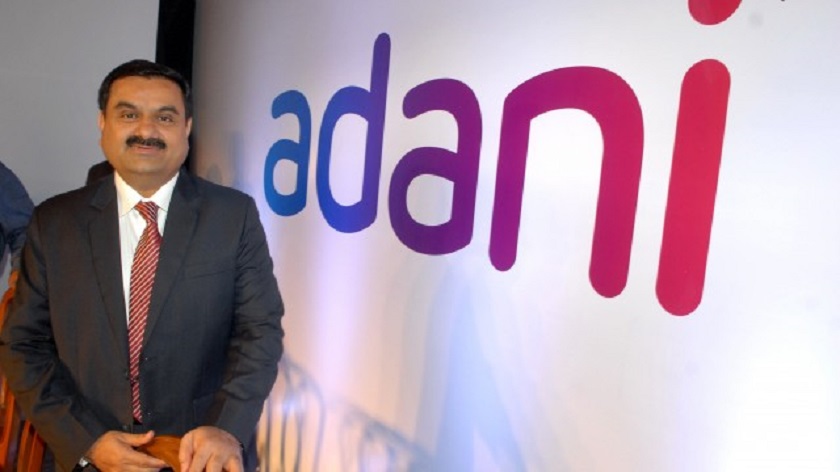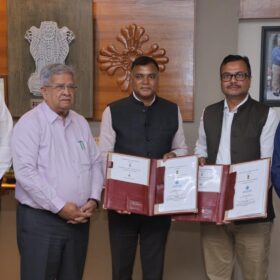Adani Group, India’s largest integrated infrastructure developer, released this week its half-yearly ESG compendium, showing significant progress in its decarbonization pathway. The group, which is at the forefront of India’s green energy transition, targets to become net zero by 2050 or earlier for five of its portfolio companies — Adani Green Energy, Adani Energy Solutions (AESL), Adani Ports & SEZ, ACC, and Ambuja Cements—by actively sourcing renewables, electrifying operations and adopting biofuels, and deploying waste heat recovery and energy storage technologies.
These portfolio companies will invest $100 billion over the next decade toward achieving energy transition.
“The roadmap to the net zero transition will require last-mile green hydrogen solutions. To make green hydrogen adoption feasible, Adani’s track record in large-scale renewables and fully integrated manufacturing with end-to-end EPC capability — all in one single location — uniquely positions it to lower costs,” stated Adani Group.
ESG highlights for H1 FY24
Adani Electricity Mumbai, a subsidiary of Adani Energy Solutions, has increased its renewable energy share in the overall mix to an impressive 38.3%, positioning Mumbai as leading procurer of RE amongst all megacities. This was made possible by the collaboration between portfolio companies Adani Energy Solutions (which owns the Mumbai distribution business) and Adani Green Energy.
Adani Energy Solutions received an impressive score of 86% from CSRHUB, a leading ESG global performance rating agency. With this, AESL’s score surpassed the Electric & Gas Utilities industry average of 911 companies.
Adani Green Energy is the highest rated utility company in the world as per Sustainalytics. In the first half of the financial year, the renewable power company achieved zero waste to landfill for all operational sites and turned net water positive at all sites of 200 MW or more.
Adani Ports, which owns 15 ports and logistics business, is well on track to turn net zero by 2040. In the first half of FY24, it achieved a 15% share of renewables in the total energy mix, reduced energy intensity by 46%, energy emission by 48% and water consumption intensity by 59%.
Adani Enterprises is building three giga-factories with a target to develop 10 GW of solar panels, 10 GW wind turbines, and 5 GW hydrogen electrolyzers as part of its low-cost integrated green hydrogen project. For solar module manufacturing, the glass factory is completed, with work commencing on the ingot and wafer plant. In October, the company commenced production of India’s largest wind turbine of 5.2 MW.
ESG Innovations
To promote reduced emission and promote sustainable energy, Adani Power partnered with IHI Corporation and Kowa company to explore ammonia co-firing at the Adani Power Mundra plant. The studies aim at initially de-carbonizing Adani’s coal fired plants but with a larger objective to implement the technology in other coal-fired plants across India.
In another significant move, Adani Enterprises entered into an agreement with Ashok Leyland and Ballard Power to develop a hydrogen Fuel Cell Electric Truck (FCET) for mining logistics and transportation, which will be Asia’s first and one of the few companies globally to operate green hydrogen-powered mining trucks.
This content is protected by copyright and may not be reused. If you want to cooperate with us and would like to reuse some of our content, please contact: editors@pv-magazine.com.









2 comments
By submitting this form you agree to pv magazine using your data for the purposes of publishing your comment.
Your personal data will only be disclosed or otherwise transmitted to third parties for the purposes of spam filtering or if this is necessary for technical maintenance of the website. Any other transfer to third parties will not take place unless this is justified on the basis of applicable data protection regulations or if pv magazine is legally obliged to do so.
You may revoke this consent at any time with effect for the future, in which case your personal data will be deleted immediately. Otherwise, your data will be deleted if pv magazine has processed your request or the purpose of data storage is fulfilled.
Further information on data privacy can be found in our Data Protection Policy.